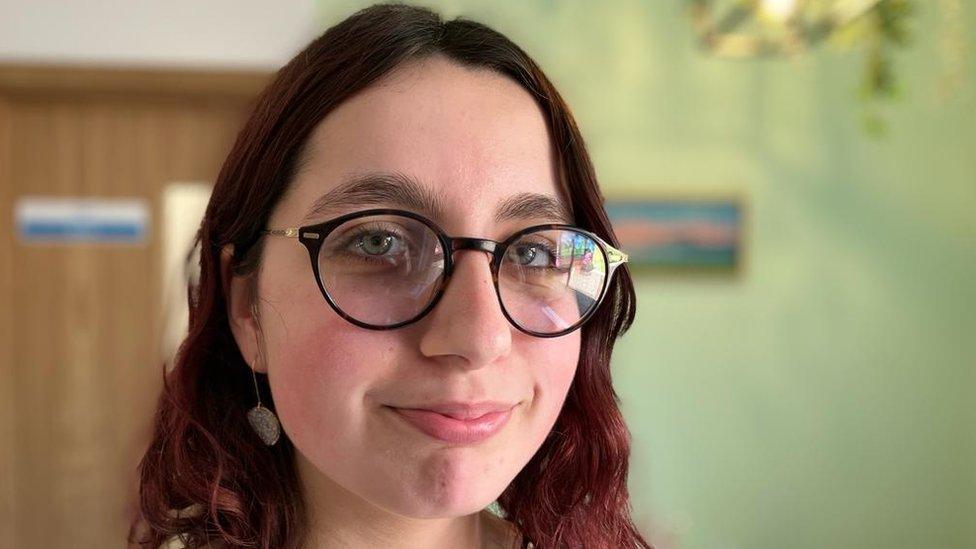Mental health: More help needed for farmers, union says
- Published
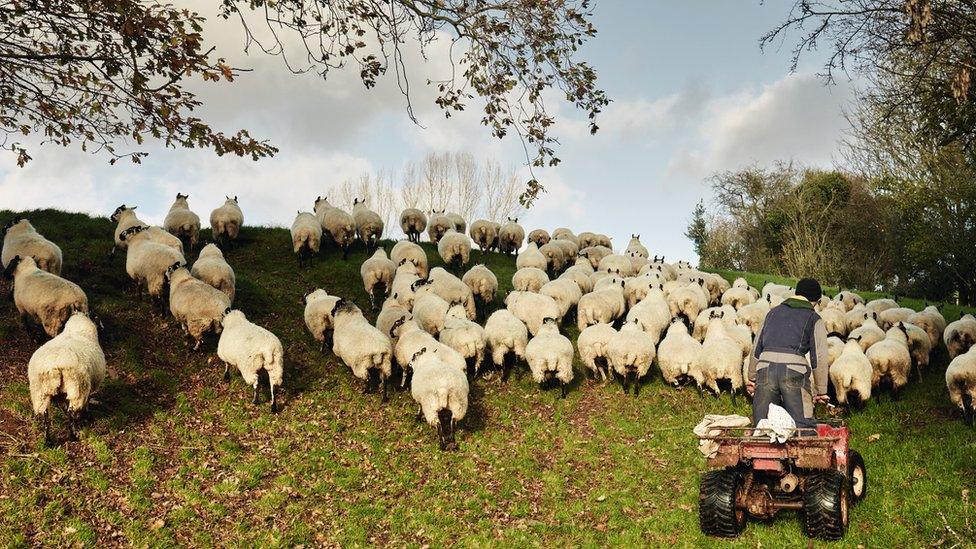
Increasing financial pressures is among a number of factors which can affect farmers' mental health
More people need to be trained to recognise the signs of depression and anxiety in farmers, a union has said.
Almost 3,000 people have been on a mental health awareness course run by a rural charity, but the Farmer's Union of Wales (FUW) said more was needed.
Policy officer Elin Jenkins said paperwork and animal health were causes of stress.
Meanwhile, a charity that provides support for farmers said its casework was at an all-time high in 2023.
Tir Dewi, which was set up in 2015, said it had seen three new cases a week this year.
Chief executive Gareth Davies said the increase was due to a combination of factors, from increasing financial pressures to more willingness among those suffering with their mental health to speak out, especially younger farmers.
Meanwhile, Ms Jenkins said: "There's nothing more devastating to a farmer or a farm business than being hit with TB (bovine tuberculosis) - that's absolutely detrimental for anybody's mental health."
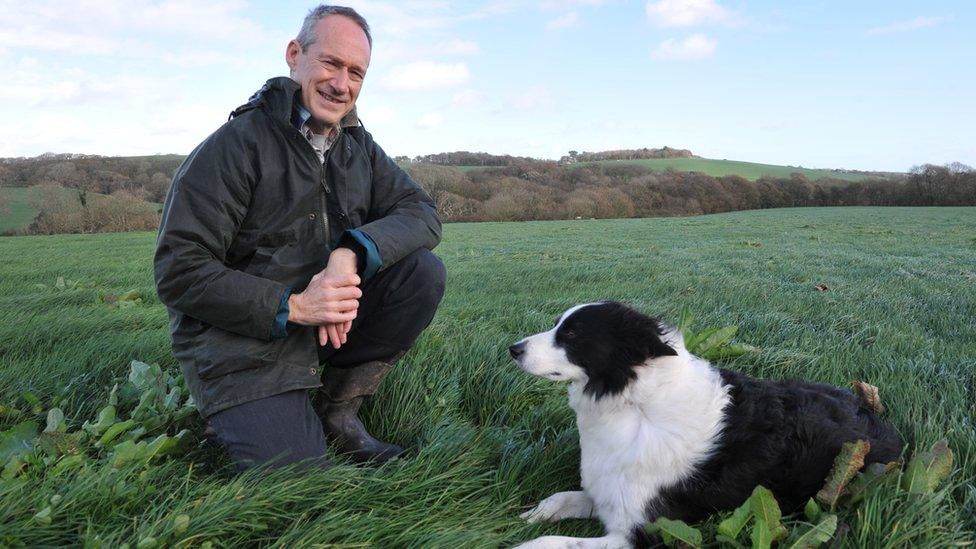
Gareth Davies is chief executive of Tir Dewi
The FUW is one of many rural organisations which has sent staff on mental health awareness training, which has been delivered by the DPJ Foundation since August 2018.
In that time the charity has trained people from a range of rural occupations, including farmers, vets, livestock market staff and farming unions.
DPJ Foundation's training manager Kay Helyar said trainees had told her the course was making a practical difference.
"I was approached a few months ago by a farm vet who had been to a training session just a few weeks before," she said.
"The very next day she'd gone out to see a farmer who was clearly struggling with his mental health, and because she'd had that training, she was able to spot those signs and to offer him her support.
"I also had an email from a lady who had been able to use the training to spot the signs that someone in her family was having suicidal thoughts - she feels that the training saved that person's life."
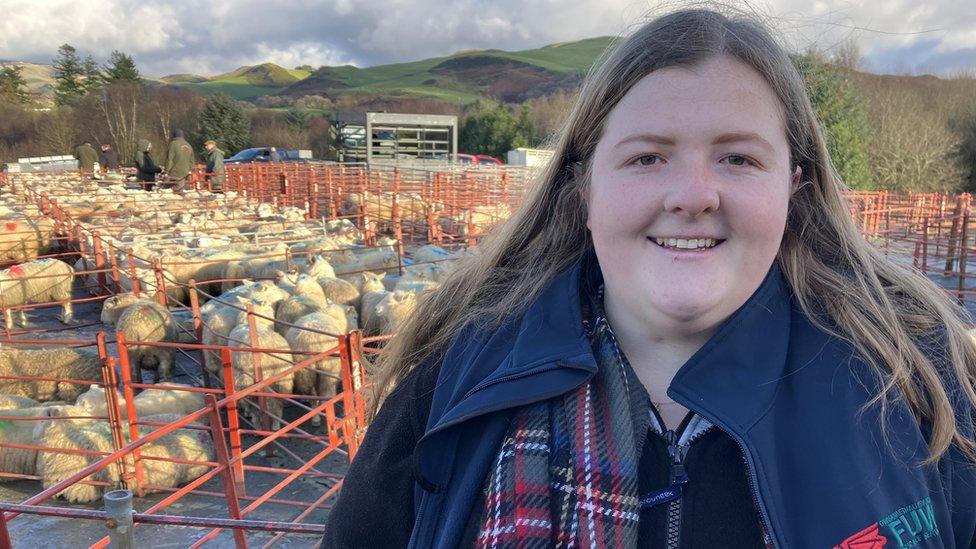
Emily Davies says farming can be a lonely industry
Emily Jones, from Tregaron, Ceredigion, enrolled on the course after seeing changes in people in her community.
"Just from speaking to people I could see they weren't as bubbly, they didn't have that glow about them and were struggling with their mental health," she said.
"I wanted to try and help by reaching out to people like that because it can be a very lonely industry."
If you have been affected by any issues raised in this article, help and support can be found at BBC Action Line
Related topics
- Published22 July 2020
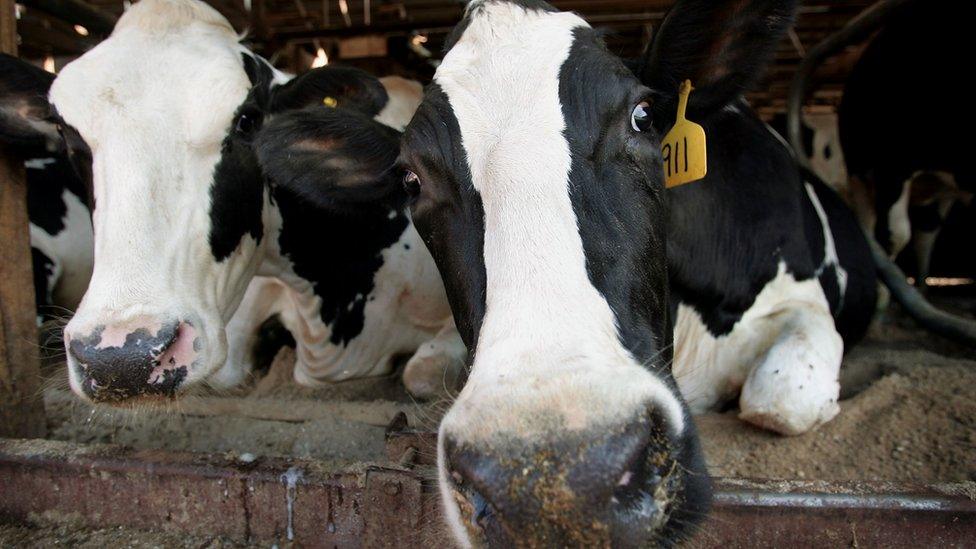
- Published14 July 2023
